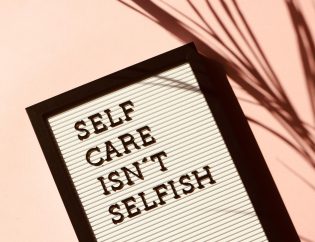
When it comes to addiction recovery, choosing the right treatment setting can make all the difference. Women-only rehab facilities have gained recognition for their unique approach, offering specialized care and support tailored specifically for women. In these dedicated environments, women find a safe space to confront the underlying causes of addiction and work through challenges with other women who understand their experiences. With a focus on holistic approaches, these facilities provide a foundation for healing that goes beyond just breaking free from addiction.
This blog will explore five key benefits of choosing a women-only rehab facility. From creating a nurturing, judgment-free space to providing access to specialized therapy, these programs are designed to empower women on their journey to recovery. By focusing on empowerment, these facilities instill a sense of hope and optimism, showing that recovery is not just about overcoming addiction but also about gaining strength and resilience.
5 Benefits of Women-Only Rehab Facilities
Whether you're considering treatment for yourself or a loved one, understanding the unique advantages of women-only rehab facilities can help you make an informed decision that supports long-term success.
Safe and Supportive Environment
First, women-only rehab facilities create a safe, judgment-free space where women can openly discuss sensitive issues and feel supported by peers with similar experiences.
In these facilities, women can feel more at ease discussing personal and sensitive topics, particularly those that may be difficult to address in mixed-gender settings. Addiction can be tied to a complex web of underlying factors, including trauma, mental health challenges, and societal pressures, all of which are often experienced differently by women. Women-only spaces foster an atmosphere of trust where residents feel understood and supported by those who may share similar struggles. This sense of belonging is essential in helping women feel less isolated and more engaged in recovery.
In a supportive environment, women are encouraged to connect with one another, forming bonds that are both therapeutic and motivational. Shared experiences become powerful tools for healing, serving as a reminder that you are not alone in your journey. Staff members in these facilities are often trained to provide compassionate, nonjudgmental care tailored specifically to the needs of women, creating a space where vulnerability and openness are welcomed. This environment not only strengthens each woman’s individual progress but also builds a sense of community, which can be a vital source of encouragement and stability both during and after treatment.
Specialized Therapy for Women’s Needs
Women-only rehab facilities provide specialized therapy that addresses the unique challenges and experiences that can often impact women’s journeys to recovery. For many women, factors like trauma, body image, self-worth, and family responsibilities play a significant role in their struggles with addiction. In women-only settings, therapists and counselors design treatment plans attuned explicitly to these challenges, often incorporating therapeutic approaches like trauma-informed care, mindfulness, and self-compassion practices. This tailored approach helps women address not only the physical aspects of addiction but also the complex emotional layers, equipping them with healthier coping strategies for long-term success.
Therapies in women-only rehab programs may also explore issues surrounding self-esteem, relationships, and boundaries. Many women in recovery face the added layer of societal and relational expectations, which can intensify stress and fuel addictive behaviors. By focusing on these distinct needs, women-only facilities offer therapy that validates and empowers women’s unique experiences. Group therapy sessions, for example, allow women to share personal insights with others who understand their struggles, fostering a sense of camaraderie and mutual encouragement. This specialized approach ultimately creates a stronger foundation for healing by addressing the root causes of addiction and empowering women with tools and support tailored specifically to their needs.
Focus on Trauma-Informed Care
Trauma-informed care is a vital component of women-only rehab facilities, recognizing the significant role that past trauma often plays in addiction. Studies show that women are more likely than men to experience certain types of trauma, such as domestic violence, sexual assault, or emotional abuse, which can be closely tied to the development of substance use disorders. In a trauma-informed facility, all aspects of care—counseling, group therapy, and staff interactions—are structured around understanding and responding to trauma's impact. This approach creates an environment where women feel safe and respected, avoiding any practices or situations that might inadvertently trigger traumatic memories.
Therapists trained in trauma-informed care are skilled at helping women process their past experiences in a way that promotes healing without re-traumatization. Techniques often include grounding exercises, mindfulness, and specific therapeutic modalities such as EMDR (Eye Movement Desensitization and Reprocessing) or trauma-focused cognitive behavioral therapy. By addressing trauma directly and safely, women can begin to unravel the complex emotions and behaviors tied to their trauma, which often serve as drivers of substance abuse. Trauma-informed care not only facilitates recovery but also empowers women to build resilience and reclaim a sense of control over their lives, setting a solid foundation for long-term sobriety and mental health.
Reduced Distractions and Social Pressure
In a women-only rehab facility, the absence of men reduces distractions and social pressures, allowing women to focus entirely on their recovery journey. In mixed-gender environments, some women may feel added pressure to conform to certain social expectations or feel self-conscious discussing sensitive topics in front of male peers. These barriers are lowered in a space with only women, enabling residents to share openly without worrying about judgment or comparison. This atmosphere can foster a more relaxed and genuine environment where each woman feels comfortable focusing on her needs, which is crucial for addressing the complex personal issues often tied to addiction.

Without the added social pressures, women can also invest more energy in self-exploration and personal growth. They have more room to work on developing healthy relationships with other women, gaining confidence, and building supportive friendships that can be essential in maintaining long-term sobriety. This setting also allows women to examine issues related to self-image, codependency, and relationship dynamics, all of which can be challenging to confront in mixed-gender groups. By eliminating potential distractions and creating a space for authentic self-expression, women-only rehab facilities help build a foundation where women feel empowered to heal and grow at their own pace.
Empowerment and Long-Term Success
Women-only rehab facilities strongly emphasize empowerment, encouraging women to rediscover their strength, resilience, and sense of self-worth—essential for achieving and maintaining long-term recovery. In these facilities, women are provided with tools and support that help them rebuild confidence, make positive life changes, and set healthy boundaries. Through counseling, self-development workshops, and skills training, women learn how to address the factors that may have led to their addiction in the first place, building a foundation that supports lasting transformation. This approach not only helps women overcome addiction but also enables them to reclaim control over their lives and embrace their full potential.
By fostering a sense of empowerment, women-only rehab programs help residents develop a mindset conducive to long-term success. Many programs integrate practical life skills, such as job readiness, financial literacy, and stress management, which prepare women for the challenges they may face after treatment. Additionally, women are often encouraged to set personal goals and engage in activities that promote self-reliance and resilience. As a result, they leave treatment feeling prepared, confident, and equipped to handle life’s difficulties without turning back to substance use. This focus on empowerment is a critical element in helping women achieve not only sobriety but also a fulfilling, healthy, and sustainable life in recovery.
Choosing a women-only rehab facility, like Twin Branch Wellness & Recovery for Women, can offer unique and powerful benefits for those seeking a supportive, specialized approach to recovery. From providing a safe and nurturing environment to delivering therapy tailored to women’s needs, these programs address the complexities of addiction with care and empathy. By reducing distractions, focusing on trauma-informed care, and empowering women with tools for long-term success, women-only rehab facilities create a healing space where women can truly thrive.
Twin Branch Wellness & Recovery for Women
If you or a loved one are considering treatment, exploring the advantages of a women-only facility may be a transformative step on the path to a healthier, more fulfilling life in recovery.
It’s been found that women feel more comfortable sharing in a group with only women. This allows them to relax, allowing them to be more open and share more authentic emotions and thoughts. Our women-specific curriculum at Twin Branch caters to a woman’s specific physical, emotional, social, and psychological needs, which have proven to help women heal and recover. Women-only treatment at Twin Branch Wellness & Recovery is tailored for long-term success.
Are you ready to start a new chapter? Are you ready to live a healthier and more fulfilling life? If you or someone you love has experienced trauma and are struggling with substance abuse, Twin Branch Wellness & Recovery for Women is here to help you begin your recovery journey. It is never too late or too soon to choose wellness and develop the tools necessary to manage life's demands.







